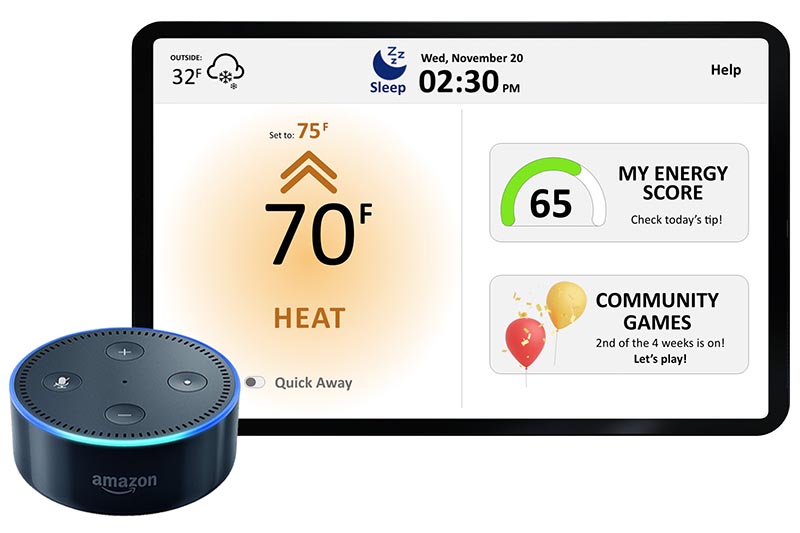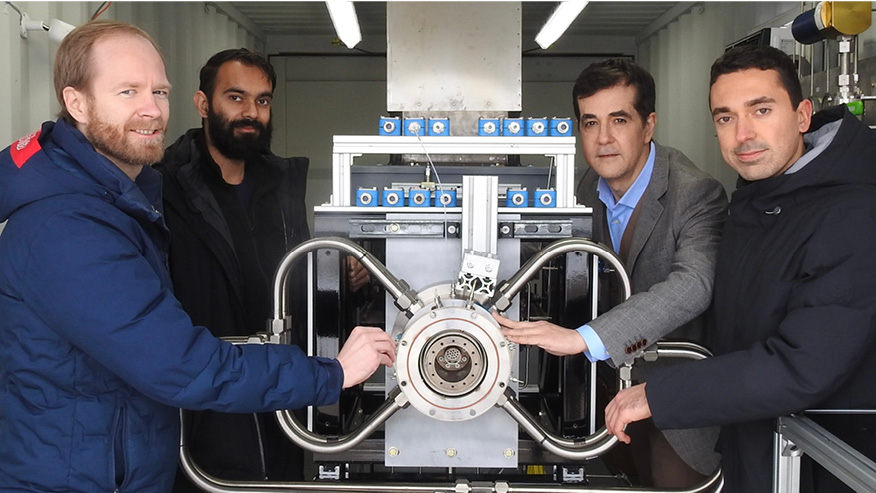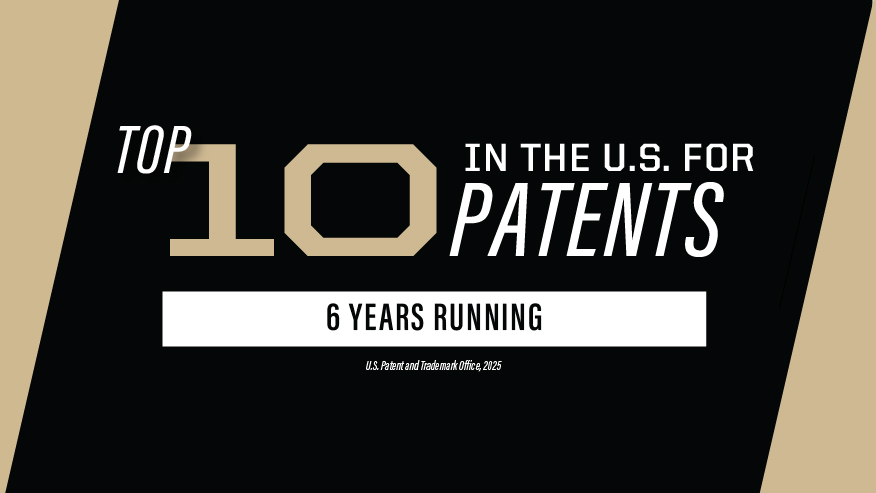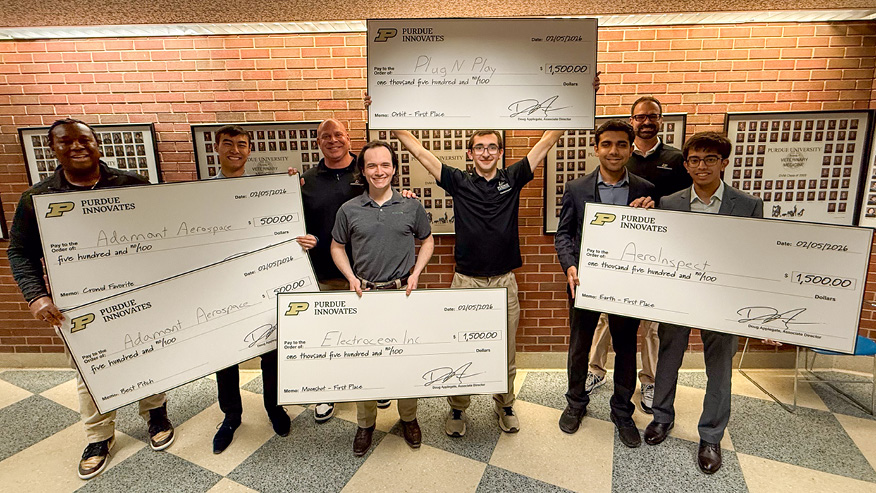Purdue IoT software platform uses gaming to motivate energy-efficient behaviors in residential communities
MySmartE strengthens, integrates multiple energy-efficiency programs developed by government, industry

Purdue University researchers have created an IoT software platform called MySmartE that incentivizes people to use energy-efficiency programs developed by government and industry. MySmartE achieved more than 80% residential engagement and 30% energy-use reduction when deployed in more than 130 households across four Indiana cities. (Image provided)
WEST LAFAYETTE, Ind. —
State and municipal housing authorities, housing developers, HVAC vendors and utility providers can strengthen their energy-efficiency programs in residential community service areas with a patent-pending, Internet of Things (IoT) system developed by Purdue University researchers that uses gaming to incentivize users.
Panagiota Karava, professor in the Lyles School of Civil Engineering, leads a multidisciplinary research team that has developed MySmartE, an eco-feedback and gaming platform for residential energy management.
“MySmartE addresses the need to effectively deploy energy-efficiency and decarbonization programs in residential communities that would result in measurable, transferable and sustainable outcomes,” Karava said. “This is accomplished by actively engaging and incentivizing residents in understanding and reducing their home energy use.”
The cloud-based software platform is implemented on user-interactive smart devices. Features include:
- Smart thermostat functionality that works like a smart tablet with a voice assistant.
- Social games that raise awareness of energy-efficient behaviors.
- An algorithm that delivers personalized actionable recommendations.
- Novel energy conservation behavior scores.
Why traditional smart thermostats fail
Karava said the residential sector is responsible for more than 20% of the total energy use and greenhouse gas emissions in the United States. Various programs have been implemented to improve energy efficiency and to reduce energy consumption in individual households. These include building retrofits, which she said are typically costly, and smart devices like smart thermostats.
“A major advantage of implementing smart devices is that they do not require a large investment in communication infrastructure for data collection and system control,” Karava said.
Smart thermostats have drawbacks, however. Studies report that they are not often used correctly due to difficulties in usability, and there’s a decrease in resident motivation over time.
“One online survey reported that about 40% of programmable-thermostat users did not understand how to program schedules; about 33% maintained a permanent hold mode without using scheduling features,” Karava said. “Similarly, my research team’s experiments with 94 households in Indianapolis and Fort Wayne show that the majority of households used constant set-point temperatures throughout winter and summer; they didn’t utilize any of the thermostats’ smart features.”
MySmartE testing and validation
The MySmartE web-based software platform uses eco-feedback and social games to engage its users. The platform leverages advances in physics-informed machine learning and human decision-making algorithms.
“Engagement is further accelerated by an intuitive user interface for efficient thermostat control and modularized software infrastructure,” Karava said. “The infrastructure is scalable and flexible to support multiple deployments across diverse housing stock, population demographics and energy programs.”
MySmartE achieved more than 80% residential engagement and 30% energy-use reduction when deployed in more than 130 households across four Indiana cities: Indianapolis, Fort Wayne, South Bend and New Albany.
“Also, our extensive interviews with residents revealed that gamification in MySmartE turns the energy-saving process into a fun and enjoyable activity while increasing energy awareness,” Karava said.
The research team received a $400,000 supplement from the National Science Foundation to further its work; the award builds on an initial $3.5 million award in 2018.
The MySmartE team includes:
- Ilias Bilionis, associate professor of mechanical engineering, College of Engineering.
- James Braun, director, Center for High Performance Buildings; the Herrick Professor of Engineering, School of Mechanical Engineering; professor of civil engineering; courtesy appointment in Environmental and Ecological Engineering, College of Engineering.
- Hemanth Devarapalli, senior research support analyst, Center for High Performance Buildings, School of Mechanical Engineering, College of Engineering.
- Huijeong Kim, visiting assistant professor, Lyles School of Civil Engineering, College of Engineering.
- Thanh Nguyen, the Lewis B. Cullman Rising Star Professor of Management, Mitchell E. Daniels, Jr. School of Business.
- Leigh Raymond, adjunct professor of political science, College of Liberal Arts.
- Julia Rayz, professor and associate head, Computer and Information Technology, Purdue Polytechnic Institute.
- Torsten Reimer, professor of communication, College of Liberal Arts; courtesy appointment in Psychological Sciences, College of Health and Human Sciences.
The team also included Sang woo Ham and Vanessa Kwarteng, former doctoral students in the College of Engineering, and Marlen Promann, former research assistant and postdoctoral fellow in the Center for High Performance Buildings, School of Mechanical Engineering, College of Engineering.
Karava disclosed the MySmartE platform to the Purdue Innovates Office of Technology Commercialization, which has applied for a patent with the U.S. Patent and Trademark Office to protect the intellectual property. Industry partners interested in developing or commercializing the work should contact Parag Vasekar, business development and licensing manager, at psvasekar@prf.org, about track code 69985.
About Purdue University
Purdue University is a public research institution with excellence at scale. Ranked among top 10 public universities and with two colleges in the top 4 in the United States, Purdue discovers and disseminates knowledge with a quality and at a scale second to none. More than 105,000 students study at Purdue across modalities and locations, with 50,000 in person on the West Lafayette campus. Committed to affordability and accessibility, Purdue’s main campus has frozen tuition 12 years in a row. See how Purdue never stops in the persistent pursuit of the next giant leap, including its first comprehensive urban campus in Indianapolis, the new Mitchell E. Daniels, Jr. School of Business, and Purdue Computes, at https://www.purdue.edu/president/strategic-initiatives.
About the Center for High Performance Buildings
Located at the Ray W. Herrick Laboratories, the Center for High Performance Buildings is dedicated to partnering with industry in the development, demonstration, evaluation and deployment of new technologies and analysis tools for high performance buildings.
About Purdue Innovates Office of Technology Commercialization
The Purdue Innovates Office of Technology Commercialization operates one of the most comprehensive technology transfer programs among leading research universities in the U.S. Services provided by this office support the economic development initiatives of Purdue University and benefit the university’s academic activities through commercializing, licensing and protecting Purdue intellectual property. In fiscal year 2022, the office reported 157 deals finalized with 237 technologies signed, 379 disclosures received and 169 issued U.S. patents. The office is managed by the Purdue Research Foundation, which received the 2019 Innovation and Economic Prosperity Universities Award for Place from the Association of Public and Land-grant Universities. In 2020, IPWatchdog Institute ranked Purdue third nationally in startup creation and in the top 20 for patents. The Purdue Research Foundation is a private, nonprofit foundation created to advance the mission of Purdue University. Contact otcip@prf.org for more information.
Writer/Media contact: Steve Martin, sgmartin@prf.org
Source: Panagiota Karava, pkarava@purdue.edu



